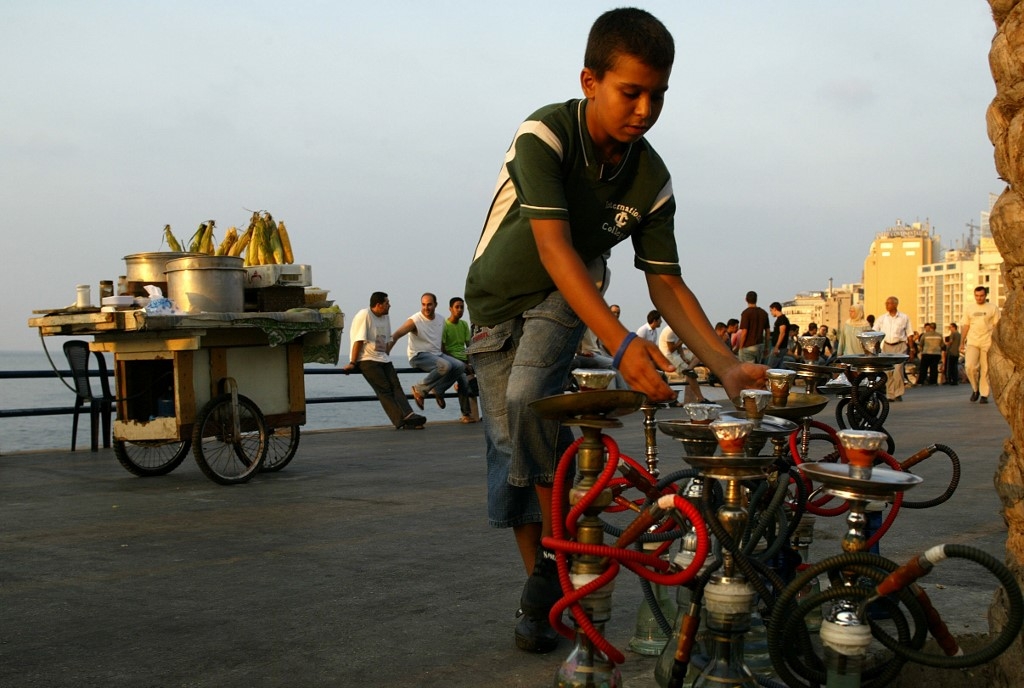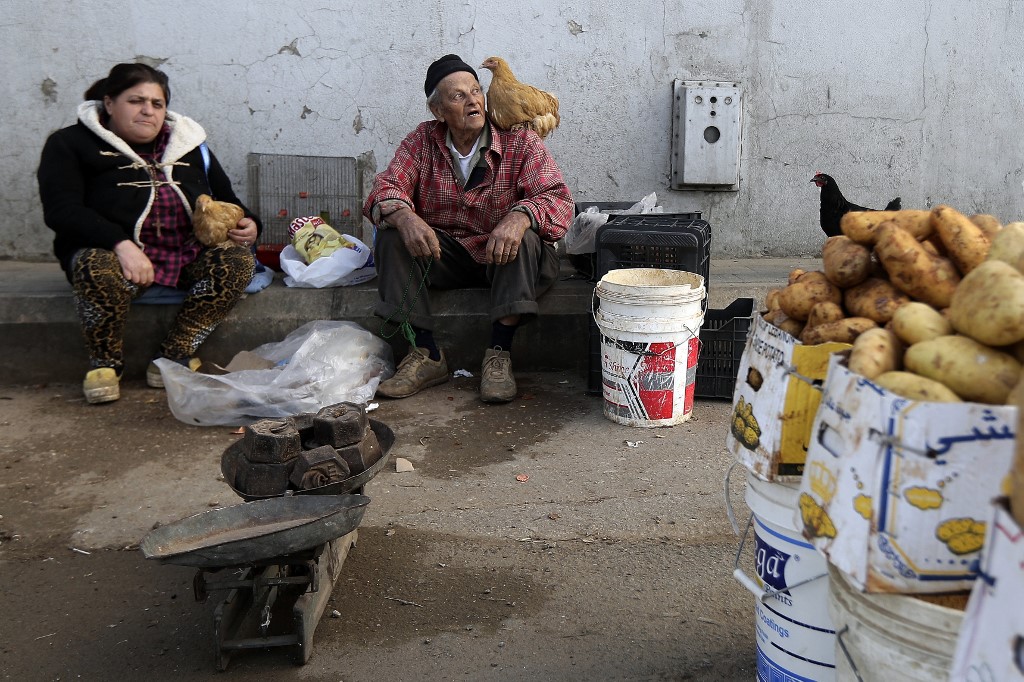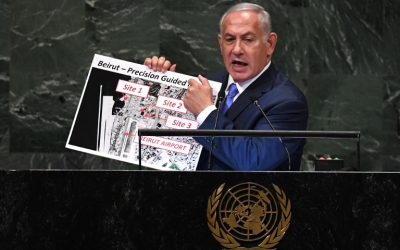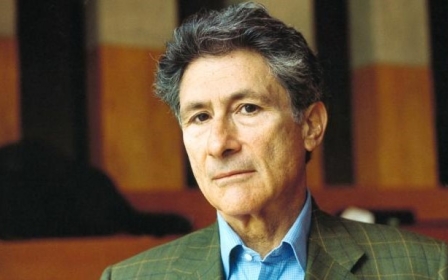Lessons from an ex-British MP who stood on a street corner in Beirut

In a recent dispatch for The Spectator, Matthew Parris - South African-British columnist and former Conservative member of the British Parliament - treats us to an account of “What you learn standing on a street corner in Beirut.”
The corner in question is located on Rue Qobaiyat in the trendy Mar Mikhael neighbourhood, which Parris incorrectly identifies as Beirut’s “Armenian quarter”. So much for learning things.
Our traveller has turned up there in search of a haircut at a barbershop that never opens. The wait enables him to catapult himself into the role of spontaneous sociocultural analyst, first with the finding that “strangers glance sharply at each other in Beirut”.
Defining the ‘Other’
Of course, any half-decent Orientalist knows to present his observations re: the “Other” in Western-centric terms - hence, for example, the 19th-century discovery by Frenchman Gerard de Nerval, a prominent character in Edward Said’s Orientalism, that the head ornaments of Druze and Maronite women in Beirut made them “look like the fabulous unicorns which support the royal arms of England”.
New MEE newsletter: Jerusalem Dispatch
Sign up to get the latest insights and analysis on Israel-Palestine, alongside Turkey Unpacked and other MEE newsletters
Parris, for his part, situates his study of Lebanese ocular movements within a recollection of his own attendance at Margaret Thatcher’s funeral, where “the Queen’s eyes darted, birdlike and alert, to left and right, taking things in”. He continues: “So do the Lebanese.”
To be sure, the trope of the unpredictable and irrationally violent Arab is a mainstay of Orientalist discourse
I myself can’t say I’ve noticed this habit in the past 13 years of visiting Lebanon, but perhaps I haven’t found the right street corner.
Parris charges on with some trenchant analysis of Christian Lebanese foreheads marked with a Lenten cross, followed by encounters with an itinerant shoe cleaner and a chewing-gum seller. He then arrives at a final scene witnessed outside a shop across the road, where two men begin screaming at each other and have to be restrained by friends: “Both assailants had completely lost it. This was so sudden, this morning eruption of violence.”
To be sure, the trope of the unpredictable and irrationally violent Arab is a mainstay of Orientalist discourse, and visitors to Lebanon from the oh-so-civilised West often can’t resist the temptation to detect in every trivial occurrence a potential throwback to the brutal civil war of 1975-90 - an affair which, it bears mentioning, took place with plenty of outside interference, including from the West itself.
An ‘eruption of violence’
While inter-human altercations are a fairly standard occurrence across the globe - including, obviously, in the UK (just Google “pub brawls, London” or “English football hooligans”) - this particular “eruption of violence” in Mar Mikhael propels Parris to quote the former British ambassador to Lebanon, Tom Fletcher: “Just when you think you’ve hit bottom, you hear a faint knocking sound from below.”
Fletcher’s actual words - “When we think we’ve hit bottom, we hear a faint knocking sound below” - appeared in his farewell-to-Lebanon blog post in 2015, in reference to the “daunting” nature of Lebanese politics. Apparently, copying and pasting text from the internet can also be a daunting task for some.
But more importantly, it’s not clear how we’ve already managed to “hit bottom” on the corner of Rue Qobaiyat, even before the morning “eruption”, when all that’s happened is that people have glanced at each other and a chewing-gum seller has come by.
The Orientalist eye, it seems, is keen to imbue the landscape with greater enigmatic significance - and Parris concludes his street-corner musings with the melodramatic lines: “Everywhere the concrete was gashed with black mould. But that’s how concrete does stain, in the rain. Visitors to Beirut must learn to love the stains.”
Imperialist condescension
Granted, Parris’ foray into the realm of Orientalist lecture would appear to be relatively benign compared to those of contemporaries such as, say, the British travel writer who penned “Boobs, Botox and the Babes of Beirut” - in which we learn that “in Lebanon the women look like Cleopatra” but that plastic surgery fiascos can result in a situation in which “some look as if a drunken Picasso has drawn a face on to a balloon”.
The glorification of elite excess and materialism directly serves the interests of a global neoliberal order predicated on obscene socioeconomic inequality
Nor does Parris’ intervention ooze the same imperialist condescension vis-a-vis the Orient as the New York Times’ Thomas Friedman’s determinations that Israel’s bombing of Lebanese civilians is “logical”, that Palestinians are “gripped by a collective madness”, or that Iraqis need to “suck on this”.
But it’s nonetheless still indicative of the West’s ongoing addiction to Orientalism - more than 40 years after the publication of Said’s seminal text - and insistence on explaining, categorising and thereby exerting control over the “Other”.
As Said himself wrote: “The Orient was almost a European invention, and had been since antiquity a place of romance, exotic beings, haunting memories and landscapes” - an arrangement that ultimately contributed to a relationship between Occident and Orient characterised by power, domination and “varying degrees of a complex hegemony”.
Miniskirts and hijabs
Nowadays, there are increasing efforts among reductionist Orientalist circles to market Beirut as the resurgent “Paris of the Middle East”, a glamorous hub of hedonism boasting all manner of extravagant money-spending opportunities - yet one that still retains the requisite exotic elements, such as the ever-astounding coexistence of miniskirts and hijabs, Hezbollah and billboard lingerie ads.
Of course, the glorification of elite excess and materialism directly serves the interests of a global neoliberal order predicated on obscene socioeconomic inequality.
As I note in my forthcoming book Exile: Rejecting America and Finding the World, “in the case of Lebanon in particular, gleeful Orientalist convulsions over the Beirut "renaissance" and the idea that the Lebanese are so much ‘like us’ invalidate and delegitimise the aspirations of those in Lebanon” with more existential concerns such as, perhaps, “the right not to be occupied and killed by Israel”.
In his parting blog post, ex-ambassador Fletcher - despite stressing his affection for Lebanon - still took it upon himself to reduce the country to one of “bullets and botox” and “dictators and divas”. This was the same Fletcher, incidentally, who once envisioned a “Beirutopia” entailing a cheery Lebanese peace agreement with the West’s favourite Israeli ally, ie. the entity that has in recent decades slaughtered tens of thousands of people in Lebanon and repeatedly devastated the territory.
As they say, just when you think you’ve hit bottom …
The views expressed in this article belong to the author and do not necessarily reflect the editorial policy of Middle East Eye.
Middle East Eye delivers independent and unrivalled coverage and analysis of the Middle East, North Africa and beyond. To learn more about republishing this content and the associated fees, please fill out this form. More about MEE can be found here.







